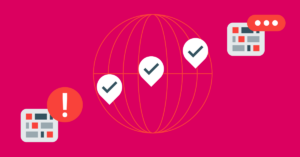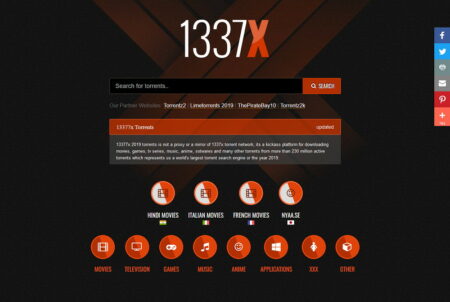This post will explain How to hide your identity online. No two people can keep a trick. And guess who else can’t keep a trick: the web. Your birth date, your partner’s name, your shopping practices, even photos of your kids as toddlers are out there for the class to see. Luckily, you can take control. We’re residing in the details age– an age where the web is at the spotlight of our lives. While the web has made the world a worldwide town, it has some drawbacks, and the biggest being no room for personal privacy.
Useful Ways To Hide Your Personal Information Online
In this article, you can know about How to hide your identity online here are the details below;
Hiding and even removing your information online can reduce someone’s possibilities of discovering it and utilizing it for harmful intent. So, are you prepared to take proactive steps to help conceal your identity online? This is what IT security professionals want you to understand.
1. Read How to Hide Your IP Address & Location
The very best way to increase your privacy online is to conceal your IP address. This is the unique way someone can trace online movement back to you. If someone with harmful intent understands your IP address, it ends up being simple for them to see the server’s area that hosts your address.
Once they have this info, they can quickly get a concept of your place. Masking your IP address helps in concealing your house address and area. The majority of people utilize a VPN (Virtual Personal Network) to hide their IP addresses. A VPN is extremely sophisticated & well encrypted to conceal your original area. Also check sites like Chatstep.
2. Change Your Social Media Privacy Settings
Twitter, Facebook, TikTok, Instagram, chances are you remain in one or all of these platforms. Facebook is the greatest social networking site, and they make changes to their personal privacy policy very often. This introduces new settings that are challenging to track.
In many cases, they even present fewer options than what you had, particularly after a significant policy change. Attempt and discover how Facebook personal privacy settings work so you can make the modifications you desire. Also, research the backgrounds for your other social media accounts & make the essential modifications.
3. Erase Your Information from Data Broker Sites
Data is the brand-new gold mine. Its value has caused the boost of information broker sites that collect people’s data. Today, almost anybody can discover your area address, phone number, and personal e-mail in a matter of minutes. Also check best vtunnel alternatives.
These information brokers gather your info from public records such as your site or social media platforms. Don’t enable your personal information to drift around on the internet where data brokers can easily discover it. If you want your details deleted from information broker websites, contact them and request to pull out.
4. Read and Reread the “regards to service” Area
If data brokers have your info, they likely got it from a particular source. Most of the times, you as a web user unwittingly accepted the Terms of Service that enabled your details to be accessed by a third party. This also applies to your images. Most people are lazy & will quickly click ‘I Agree’ even prior to checking out the Terms of Service.
For example, Facebook has a “sync” feature where you can integrate your contact list from your smartphone to Facebook. Selecting the “Sync Contacts” function exposes your contact list to Facebook’s analytics.
5. Consider Using Confidential Email
While using a VPN will hide your IP address from undesirable parties, sending emails provides a various difficulty. If you want to send somebody an email and don’t desire them to discover you, here’s one way to go about it. Attempt and use an alias that works as a forwarding address.
If you send out somebody an e-mail through a pseudonym, they will just see the forwarding address and not your actual e-mail. This technique keeps your real e-mail address hidden. Nevertheless, it won’t protect you from being continually spammed. Also check spy apps.
6. Mind What You Post Online
You pick what you want to keep personal and what you want to reveal the world. It’s that simple. Nevertheless, research study shows that different age respond differently to this. For instance, older generations choose to manage their concerns out of the general public world.
On the other hand, millennials and Generation Z believe that oversharing is typical. Sharing everything that enters your mind to the world has no worth. Take control of what you share online and prevent exposing personal details to the world.
The pointers above will succeed to help keep your individual information concealed from the online world. Use them, but do not think that they will do marvels to hide your personal privacy. Remember, the buck stops with you. Likewise, be patient when going through this process since it’s difficult to attain the results overnight. Often, you’ll require to accept that you can not remove whatever from the web.









